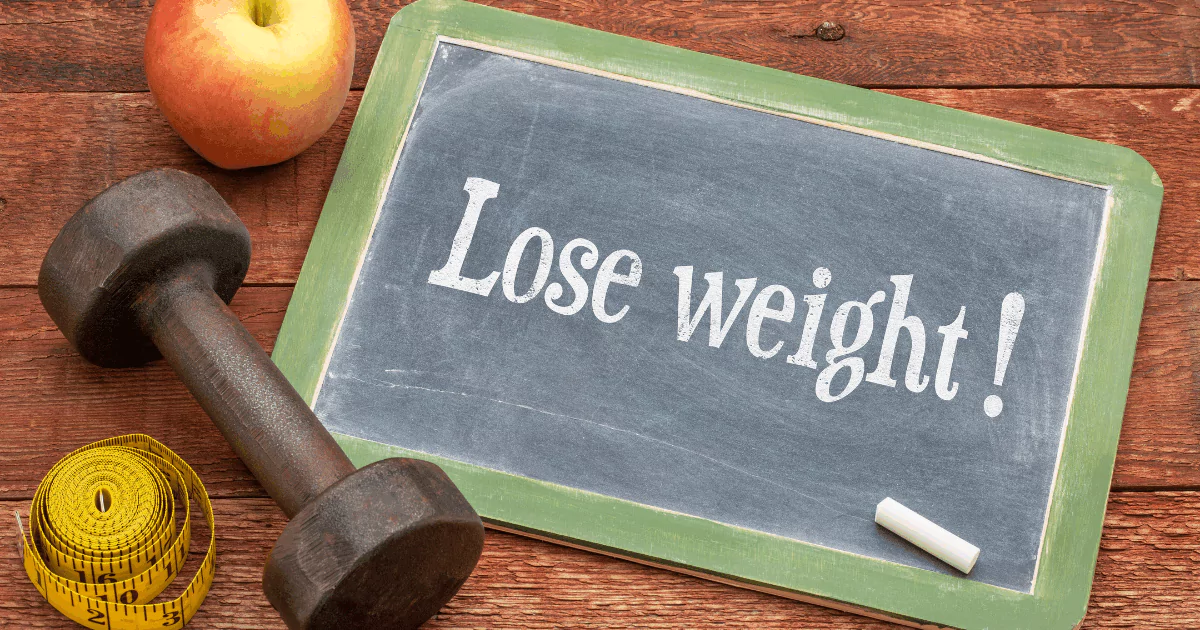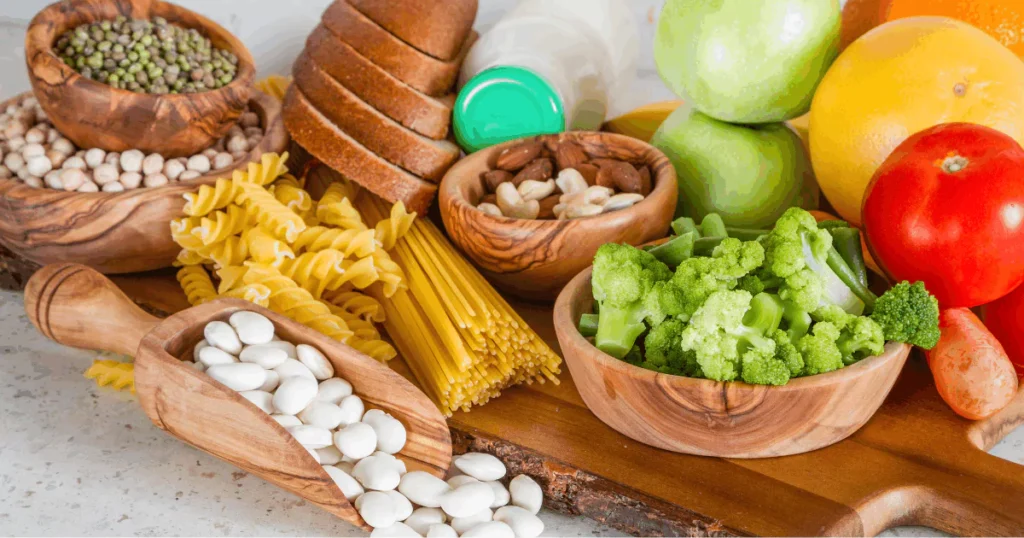Losing weight doesn’t always require a strict diet. You can make simple lifestyle changes to lose weight without going on a strict diet. Start by focusing on portion control and eating smaller, more balanced meals throughout the day. Adding whole foods like fruits, vegetables, and lean proteins can help you feel full without overindulging.
Additionally, regular physical activity, such as walking or light exercises, plays a key role in burning calories. Staying hydrated and getting enough sleep also contribute to weight management. By following these easy adjustments, you can successfully lose weight without going on a strict diet while maintaining a healthier and more sustainable lifestyle.

Lose Weight Without Going on a Strict Diet
Losing weight is a common goal for many, but the idea of following a strict diet can be daunting. Often, these restrictive diets can lead to frustration, feelings of deprivation, and eventually, failure. Fortunately, there are ways to achieve weight loss without subjecting yourself to harsh dietary rules. By making sustainable lifestyle changes, you can lose weight and improve your health in the long term—without going on a strict diet.
Focus on Portion Control
One of the best ways to lose weight without going on a strict diet is to manage portion sizes carefully. Many believe eating healthy foods alone will help them shed pounds, but even nutritious foods can contribute to weight gain when consumed in large quantities. By controlling how much you eat, you can naturally reduce calorie intake, making it easier to lose weight without going on a strict diet. Ultimately, maintaining portion control is a sustainable strategy that enables you to lose weight without going on a strict diet and still enjoy a variety of foods.
Here’s how to practice portion control without feeling deprived:
Practice Mindful Eating: Eating slowly and savoring your food can help you recognize when you’re full. Avoid distractions like watching TV or using your phone while eating so you can focus on the taste, texture, and smell of your meal. This can prevent overeating.
Use Smaller Plates: Research suggests that using smaller plates can help you eat less without even realizing it. This is a psychological trick—smaller plates make portions appear larger, which can help you feel satisfied with less food.
Measure Your Portions: At least in the beginning, try measuring your food to understand what a standard portion looks like. For example, a serving of meat is typically the size of a deck of cards, and a serving of cooked pasta should be about half a cup.
Increase Physical Activity
Losing weight isn’t just about following a strict diet; it’s also about increasing physical activity to burn more calories and improve overall health. Many people think they have to cut calories drastically, but it’s possible to lose weight without going on a strict diet. You can also lose weight without going on a strict diet by focusing on portion control and opting for balanced meals. Making small, sustainable changes to your lifestyle can lead to long-term success. Remember, you can still lose weight without going on a strict diet by staying active, hydrated, and mindful of your daily habits.

Here are a few ways to incorporate more movement into your day:
Active Hobbies: Find a physical activity you enjoy, such as dancing, cycling, or swimming. This will make it easier to stick to an exercise routine and stay active in the long term.
Take the Stairs: Instead of using the elevator or escalator, take the stairs whenever possible. It’s a simple way to add more physical activity to your routine.
Walk More: Walking is a great, low-impact way to burn calories. Try walking for at least 30 minutes daily, whether during your lunch break, after dinner, or as part of your commute.
Short Workouts: If you’re pressed for time, try short, high-intensity workouts. Even 10-15 minutes of exercise can make a difference when done regularly.
Eat Nutrient-Dense Foods
One of the most effective ways to lose weight without going on a strict diet is by prioritizing the quality of the foods you consume. By incorporating whole grains, lean proteins, fruits, vegetables, and healthy fats into your daily meals, you can lose weight without going on a strict diet or feeling deprived. This approach not only promotes gradual weight loss but also supports long-term health and wellness. Focusing on nutrient-rich options allows you to enjoy a wide variety of delicious foods and lose weight without going on a strict diet, all while maintaining your energy and vitality.

Here are some examples of nutrient-dense foods to include in your diet:
- Vegetables: Leafy greens like spinach, kale, and Swiss chard are low in calories but packed with nutrients. Add a variety of colorful vegetables to your meals to increase your intake of vitamins and minerals.
- Fruits: Fresh fruits like berries, apples, and oranges are a great source of fiber, which can help with digestion and promote feelings of fullness.
- Lean Proteins: Foods like chicken breast, fish, and legumes provide protein, which is essential for muscle maintenance and metabolism. Protein-rich foods also help keep you feeling satisfied.
- Whole Grains: Choose whole grains like quinoa, brown rice, and oats over refined grains like white bread and pasta. Whole grains are high in fiber and take longer to digest, helping you stay full for longer.
By focusing on nutrient-dense foods, you can naturally reduce your calorie intake without having to follow a rigid eating plan.
Stay Hydrated
Water plays a vital role in weight loss and overall health. Drinking enough water throughout the day can help control your appetite and prevent overeating, as thirst is often mistaken for hunger.
Here are some tips to stay hydrated:
Flavor Your Water: If plain water feels boring, try adding slices of fruit like lemon, lime, or cucumber to give it a refreshing taste without added calories.
Drink Water Before Meals: Drinking a glass of water before meals can help you eat less by making you feel fuller.

Carry a Water Bottle: Keep a reusable water bottle with you to remind yourself to drink water regularly throughout the day.
Choose Water Over Sugary Drinks: Replace sugary drinks like soda and fruit juice with water. These drinks can add a significant amount of calories to your daily intake without providing much nutrition.
Improve Sleep and Manage Stress
Getting enough sleep and managing stress are often overlooked when it comes to weight loss, but they are crucial factors. Poor sleep and chronic stress can lead to weight gain and make it harder to lose weight.
Create a Relaxing Bedtime Routine: Establishing a calming bedtime routine, such as reading a book or taking a warm bath, can help improve your sleep quality and reduce stress.

Sleep and Weight Gain: Lack of sleep can disrupt your metabolism and increase your cravings for unhealthy foods. Aim for 7-9 hours of quality sleep each night to support your weight loss goals.
Stress and Emotional Eating: Stress can trigger emotional eating, where you eat not because you’re hungry, but to cope with your emotions. Find healthy ways to manage stress, such as practicing meditation, yoga, or deep breathing exercises.
Practice Mindful Eating and Listen to Your Body
Mindful eating is a practice that encourages you to slow down and pay attention to the present moment while eating. This helps you enjoy your food more and prevents overeating. You can develop a healthier relationship with food by listening to your body’s hunger and fullness cues.
Here’s how to practice mindful eating:
Avoid Eating in Response to Emotions: If you find yourself reaching for food when you’re stressed or upset, try engaging in another activity instead, such as going for a walk, journaling, or practicing deep breathing.
Eat Without Distractions: Turn off the TV and put away your phone during meals. Focus solely on your food to fully enjoy the experience and recognize when you’re full.
Recognize Hunger and Fullness Cues: Before eating, ask yourself if you’re truly hungry or if you’re eating out of habit or boredom. Stop eating when you feel satisfied, not stuffed.
Savor Each Bite: Take the time to chew your food thoroughly and enjoy each bite. This will help with digestion and allow you to appreciate your meal more.
Conclusion
Lose weight without going on a strict diet by making small, sustainable changes to your daily routine. Instead of depriving yourself of the foods you love, focus on controlling portion sizes and opting for nutrient-dense foods that fuel your body. Increasing physical activity and staying hydrated can further support your goals. Incorporating mindful eating habits helps you enjoy your meals while being aware of hunger and fullness cues.
By focusing on these balanced lifestyle changes, you can lose weight without going on a strict diet while still enjoying the process. Prioritizing sleep and self-care is essential, as weight loss is a journey that requires patience. Ultimately, you can lose weight without going on a strict diet by creating habits you can maintain for life.

